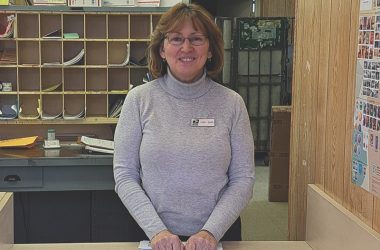by Kate Evans
Numbers of positive novel coronavirus COVID-19 cases keep rising in the four-state region.
As of Monday, April 27 some 36 West Virginia residents have died from the virus with 1,063 residents testing positive for the disease, according to the West Virginia Department of Health and Human Resources.
Morgan County’s positive COVID-19 cases rose to nine cases. Berkeley County had 133 positive COVID-19 cases, Jefferson County-72 cases, Mineral County-15 cases and Hampshire County-seven cases. Berkeley County and Hampshire County have each had one death from the virus.
Dr. Terence Reidy, Health Officer for the Berkeley/Morgan Counties Health Departments said that there are no agencies in Morgan County willing to do a drive-through COVID-19 testing site, but that there continues to be ongoing discussion about it.

Dr. Terrence Reidy, chief medical officer for the Berkeley-Morgan Health Department.
There is limited testing ability for the virus at some Morgan County doctor’s offices where they’ll do the swab and send it out to a lab, he said. Reidy would like to test more for COVID-19. The problem is that healthcare workers have to don full protective gear to administer the test.
Reidy noted that the need for COVID-19 testing is increasing. Everyone wants to be tested. It takes a while to have the tests, personnel, protective equipment supplies, chemical reagents and other needed supplies on hand for a large volume of testing. He said it will be nice when the self-swab coronavirus testing is available to the general public.
Cases will rise
Reidy said that the numbers of COVID-19 cases are going to increase-“we’re not isolated.” People that live here and people that come here are those infected, from what Reidy has seen.
The coronavirus is not unique to any profession, group or age, he stressed. COVID-19 strikes people in their 90s, children under age five and all races. It hits people who work in service industries. Two big risk factors are being elderly and obese.
Some patients have no symptoms at all and may be infectious for one to 14 days before they show symptoms, Reidy said. People need to take the virus seriously and continue following the stay at home and social distancing guidelines to keep the coronavirus from spreading.
Reidy hoped that better treatments or a vaccine will be available in time, but it won’t be anytime soon.
Contact tracing
Tracing contacts of people that have tested positive for COVID-19 has helped, especially if they’re in a profession dealing with the public like a cashier. Public health officials want them in quarantine for two weeks and not working in a store spreading the virus, Reidy said.
Most people are doing well and recognizing the need to stay home during this pandemic, he said.
Reidy suggested that one person shop for several people to minimize the number of trips to town and the risk of exposure.
Reidy advised wearing a face mask, washing your hands often with soap and water and staying home as much as possible unless you need to go out for essential items like food and medicine.
Stay six feet away from others and stay home if you’re sick, he said.
New COVID-19 symptoms
Early this week, the Centers for Disease Control and Prevention (CDC) added six new symptoms to the list of possible coronavirus symptoms to watch for besides fever, cough and shortness of breath.
The new list of COVID-19 symptoms is fever, cough, shortness of breath or difficulty breathing, repeated shaking with chills, muscle pain, headache, sore throat and new loss of taste or smell.
Any of these symptoms can occur anywhere from two to 14 days after exposure to the virus, according to the CDC.
Seek immediate medical attention if you develop any of these emergency symptoms of Covid-19-trouble breathing, persistent pain or pressure in the chest, new confusion or inability to arouse or bluish lips or face.









